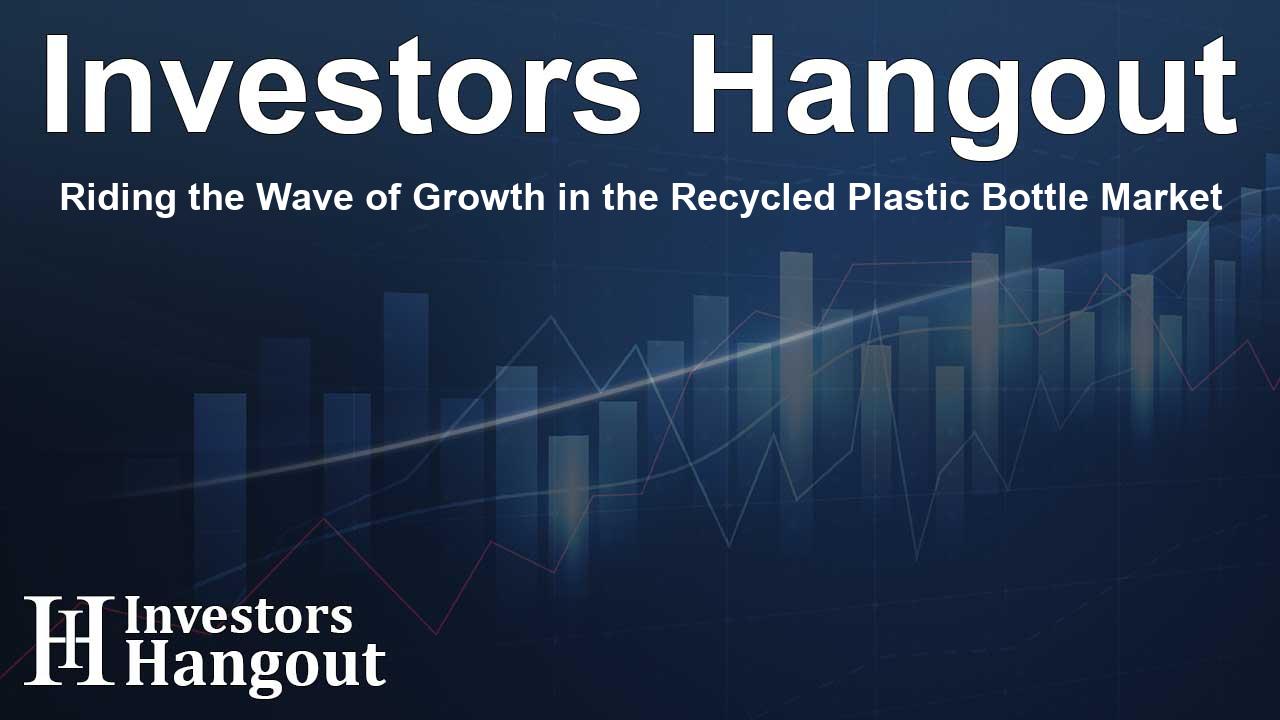Riding the Wave of Growth in the Recycled Plastic Bottle Market

The Emerging Landscape of Recycled Plastic Bottles
The global recycled plastic bottle market is on an exciting path, marked by an anticipated growth of USD 4.89 billion from 2024 to 2028, with an expected compound annual growth rate (CAGR) of around 8.06%. As more companies realize the importance of sustainability, the demand for both plastic and recycled bottles has surged. This evolution is powered by innovative technologies and a strong push towards environmental responsibility.
AI-Driven Innovations Reshaping the Market
Artificial intelligence is becoming a key player in transforming the landscape of the plastic bottle recycling industry. Through sophisticated data analysis and process optimization, AI helps companies identify trends and improve the efficiency of recycling operations. This technological advancement not only enhances productivity but also helps in better managing resources. Furthermore, the integration of AI in recycling procedures offers insights into consumer behaviors and preferences, allowing companies to tailor their offerings accordingly.
Driving Factors Behind Market Growth
The rise in the usage of recyclable materials is partly driven by regulatory pressures and increased consumer awareness regarding environmental issues. Many companies are committing to sustainability initiatives, pledging to make their packaging either recyclable, reusable, or compostable in the near future. Major brands have set ambitious goals, including significant reductions of virgin plastic usage.
Additionally, the involvement of alliances such as the Alliance to End Plastic Waste showcases a collective effort in tackling plastic pollution through financial commitments to develop innovative recycling solutions. The growing collaboration among industry stakeholders is vital in scaling up recycling initiatives globally.
The Challenges Ahead
Despite the promising growth trajectory, the recycled plastic bottle market faces notable challenges. One critical hurdle is the inadequate infrastructure for the collection and management of plastic waste, particularly in developing regions. Many emerging economies struggle with the capacity to effectively collect and process plastic waste, leading to substantial losses in recyclable materials.
Environmental Impact and Recycling Technology
The environmental consequences of poor plastic waste management cannot be overstated. Projections indicate that if current trends continue, by 2050, landfills could contain over 12 billion metric tons of plastic waste. This underscores the urgent need for improved waste management systems and public awareness campaigns to encourage recycling practices.
Technological advancements in recycling processes are critical for successful waste management. Sophisticated technologies allow for the recycling of a variety of plastics, including PET, HDPE, and PP. Programs designed to streamline collection and sorting processes are essential in ensuring higher recycling rates and tackling contamination issues that often hinder recycling efforts.
The Path To a Sustainable Future
Looking ahead, the recycled plastic bottle market's potential is vast as companies implement new strategies and technologies to enhance sustainability. With continued investment in recycling research and innovation, the industry is set for substantial developments that focus not only on profitability but also on environmental stewardship.
Future Opportunities for Recyclables
As businesses increasingly adopt sustainable practices, they open avenues for partnerships and collaboration across industries. This creates a robust network aimed at optimizing resource recovery and minimizing waste. The future landscape includes not only recycling for plastic bottles but also expansive applications in textiles and construction, showcasing the versatility and potential of recycled materials.
Frequently Asked Questions
1. What is driving the growth of the recycled plastic bottle market?
The market is growing due to increased demand for sustainable packaging, driven by regulatory pressures and evolving consumer preferences for environmentally friendly products.
2. How is AI influencing the market?
AI optimizes recycling processes and provides valuable insights into market trends, driving efficiency and improving resource management in the recycling sector.
3. What challenges does the market face?
Challenges include inadequate waste management infrastructure, contamination issues in recycling processes, and the need for better public awareness regarding recycling practices.
4. What future trends can we expect in the recycling industry?
We can expect continued advancements in recycling technology, greater corporate commitments to sustainability, and more collaboration across industries to enhance recycling initiatives.
5. How can companies improve their recycling efforts?
Companies can improve their recycling efforts by investing in new technologies, establishing robust waste collection systems, and engaging in educational campaigns to encourage sustainable practices among consumers.
About Investors Hangout
Investors Hangout is a leading online stock forum for financial discussion and learning, offering a wide range of free tools and resources. It draws in traders of all levels, who exchange market knowledge, investigate trading tactics, and keep an eye on industry developments in real time. Featuring financial articles, stock message boards, quotes, charts, company profiles, and live news updates. Through cooperative learning and a wealth of informational resources, it helps users from novices creating their first portfolios to experts honing their techniques. Join Investors Hangout today: https://investorshangout.com/
Disclaimer: The content of this article is solely for general informational purposes only; it does not represent legal, financial, or investment advice. Investors Hangout does not offer financial advice; the author is not a licensed financial advisor. Consult a qualified advisor before making any financial or investment decisions based on this article. The author's interpretation of publicly available data shapes the opinions presented here; as a result, they should not be taken as advice to purchase, sell, or hold any securities mentioned or any other investments. The author does not guarantee the accuracy, completeness, or timeliness of any material, providing it "as is." Information and market conditions may change; past performance is not indicative of future outcomes. If any of the material offered here is inaccurate, please contact us for corrections.